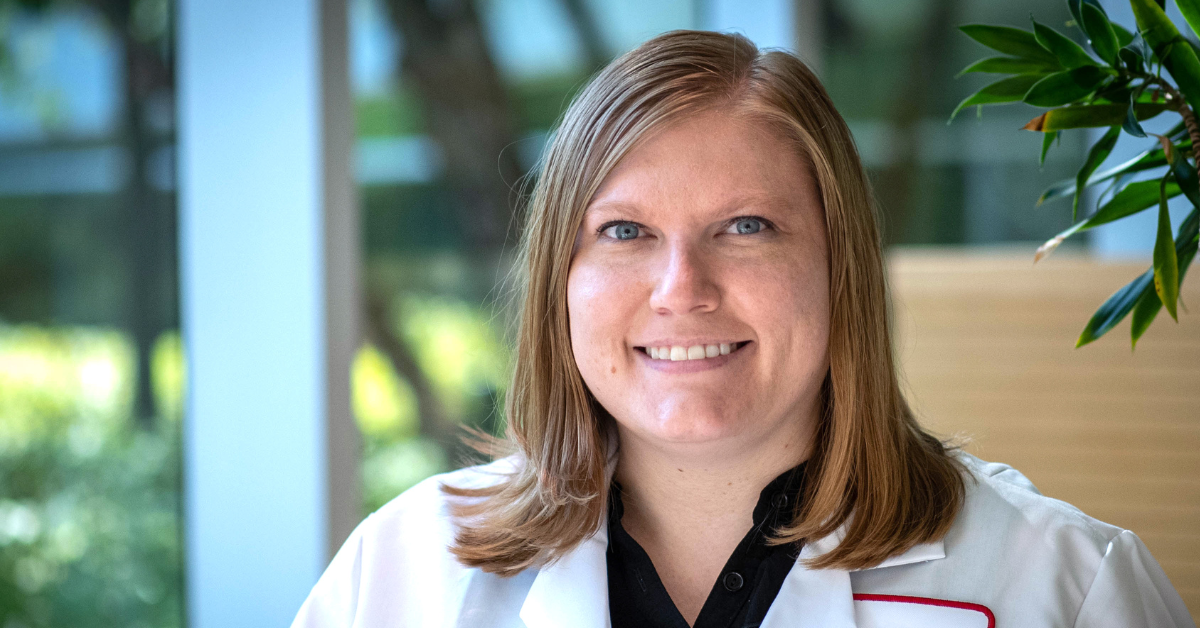
PHILADELPHIA (November 12, 2024) — For patients with cancer in the lower part of the rectum that has not spread to the lymph nodes, chemotherapy administered before localized surgery is an effective method of preserving a patient’s surrounding organs, according to a new study by researchers at Fox Chase Cancer Center.
“We found with this study that 79% of patients achieved successful organ preservation, and no local recurrences have been reported at a median follow-up of more than 24 months,” said Vanessa Wookey, MD, Assistant Professor in the Department of Hematology/Oncology at Fox Chase and lead author on the study. She presented the research at the Eastern Cooperative Oncology Group and American College of Radiology Imaging Network (ECOG-ACRIN) Annual Meeting.
Total mesorectal excision, which is the removal of a rectal tumor along with a surrounding portion of the bowel, has been shown to be a highly effective treatment for rectal cancer but is associated with significant morbidity and mortality. While organ preservation for locally advanced rectal cancer has been successful, it has not been well studied in patients with cancer in the lower part of the rectum that has not spread to the lymph nodes. With this study, researchers at Fox Chase sought to determine whether tumor removal after chemotherapy would be an effective treatment to spare surrounding organs in these patients.
A total of 19 patients with cancer in the lower part of the rectum were enrolled. These patients were diagnosed with rectal cancer that had not spread to the lymph nodes and received a combination chemotherapy treatment called FOLFOX before having their tumor removed. Following surgery, they were given chemoradiation and observed to determine whether the organ-preserving approach was effective.
Results showed that of those 19 patients, 15 had successful organ preservation surgery and completed chemotherapy. One of the 19 patients had a metastatic recurrence, but there were no local recurrences after two years.
“Neoadjuvant chemotherapy and local excision for node-negative, low rectal cancer followed by chemoradiation is a feasible organ-preserving approach and results in durable, long-term local control and preserved quality of life,” said Wookey. “While this work merits further investigation, our approach will provide early data on the benefits of chemoradiation following surgery to target lymph nodes that are undetectable in radiological and clinical examinations.”
Wookey presented the results of the study, “Phase II Study of Organ Preservation Using Neoadjuvant Chemotherapy and Local Excision in Node-Negative Low Rectal Cancer,” at the ECOG-ACRIN Annual Meeting, which was held this month in Fort Lauderdale, Florida.